Release date: 2018-02-23
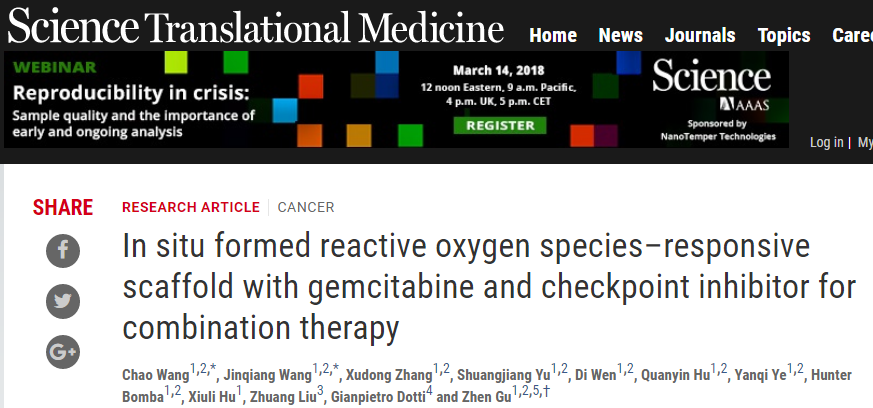
In recent years, cancer immunotherapy has developed rapidly, and immunological checkpoint blockade (ICB) therapy including PD-1/PD-L1 antibody has attracted the most attention. However, such treatments can also have headaches, including the initiation of the immune system to attack healthy tissues. At the same time, because many tumors lack the specific features required for identification by immunotherapy, ICB therapy usually does not work for these low-immunogenic tumors.
Previous evidence has shown that if a doctor first attacks a tumor with chemotherapy and then treats the patient with immunotherapy, it will achieve better results. However, this method is not enough for patients with low immunogenic tumors. Scientists have also been designing a variety of methods to make immune therapy more effective for patients. Among them, some researchers are trying to use the delivery system to directly transport immunotherapy and other drugs to the tumor site to enhance efficacy and reduce toxicity to other parts of the body.
In this newly published study, Professor Gu Yu developed a bioresponsive scaffold system. Essentially, it is a hydrogel - a polymeric network capable of carrying drugs.
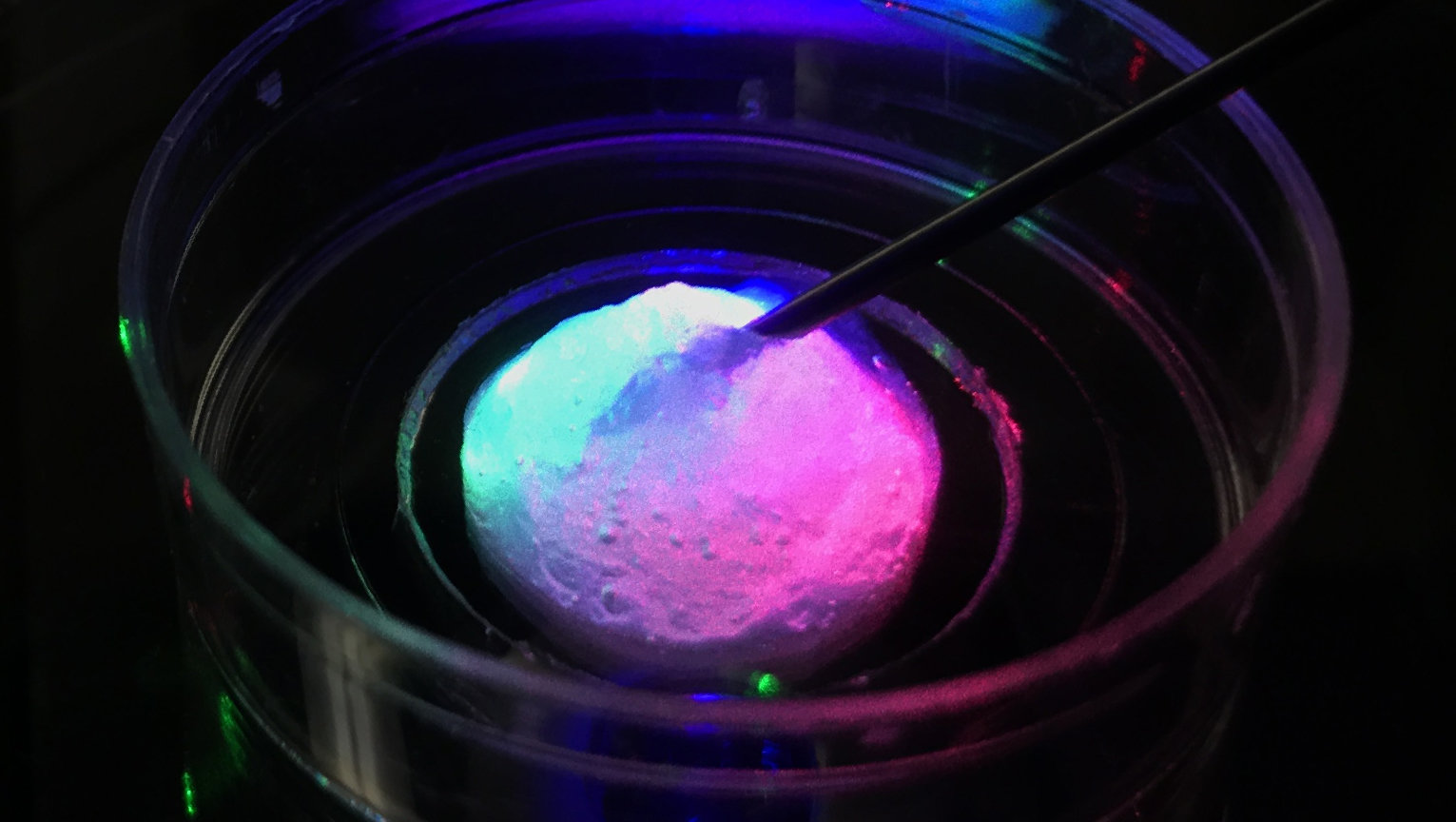
The gel full of chemo-immunotherapeutic drugs. Credit: Gu Lab, UNC School of Medicine
How does “smart gel†work?
Specifically, in the study, scientists used this hydrogel scaffold to carry a chemotherapy drug, gemcitabine, and an immunotherapeutic drug, PD-L1. When injected into the tumor, the gel reinforces certain tumor features that immunotherapy can recognize. Then, under the action of highly reactive ROS (reactive oxygen species, a natural chemical by-product of cell metabolism) in the tumor, the scaffold gradually decomposes, releasing gemcitabine first, and then releasing PD-L1 antibody.

When injected into tumors, this therapy forms a gel to attack cancer cells. Credit: Gu Lab
Professor Gu Yu et al tested this therapeutic gel-mediated approach against the efficacy of two cancers (B16F10 melanoma and 4T1 breast cancer, the latter being low immunogenic). The results show that the therapy can effectively make the tumor microenvironment sensitive to treatment; when the drug carried by the gel is released, the tumor is significantly reduced. The researchers also performed experiments at the surgical site after removal of the primary tumor. The results showed that cancer recurrence was significantly inhibited.
Dr. Gianpietro Dotti, a professor of microbiology and immunology who participated in the study, explained: "Chemotherapy can kill some cancer cells first and enhance the sensitivity of the tumor to ICB therapy, thereby stimulating the effectiveness of immunotherapy. In addition, along with the gel Degradation, ROS levels at the tumor site will also decrease, which will also help inhibit tumor growth."
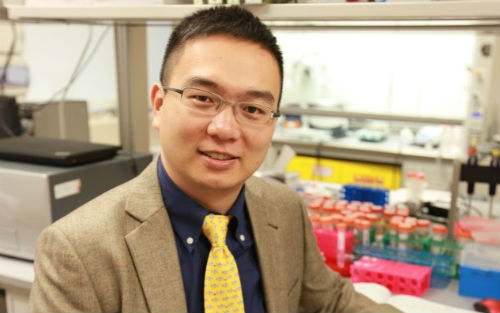
Professor Gu Yu (Source: Network)
“We have created a simple method to combat the development of tumors with limited side effects. Although we still have a lot of work to do before entering human clinical trials (eg, further optimization of the dose of the combination drug and the frequency of treatment) But we believe that this method has great potential." Professor Gu Yu said.
The team's achievements in the field are constantly
In fact, in addition to this smart gel delivery system, Professor Gu Yu's team has developed a variety of other ways to deliver cancer immunotherapy in the last two years.
Microneedle patch
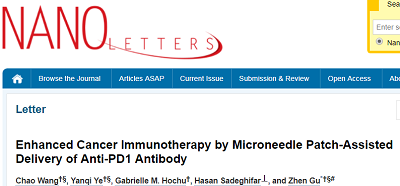
Image source: Nano Letters
In a paper published in Nano Letters in March 2016, they proposed a "microneedle patch" that delivers PD-1 antibodies. Specifically, the team first loaded the PD-1 antibody into the nanoparticles together with glucose oxidase, loaded the nanoparticles into the microneedles, and finally arranged the microneedles on the surface of the patch (below). When used, blood enters the microneedle, and glucose in the blood produces acid under the action of glucose oxidase, which slowly decomposes the nanoparticles. As the nanoparticles are gradually degraded, the PD-1 antibody can be released into the tumor.
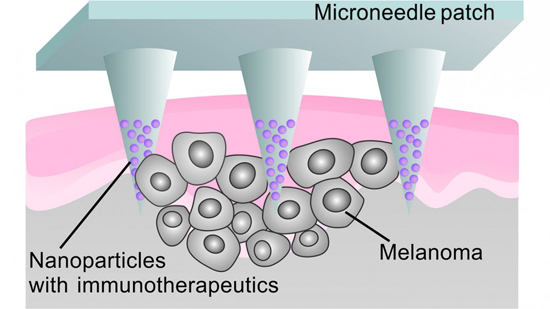
"smart" platelet delivery system
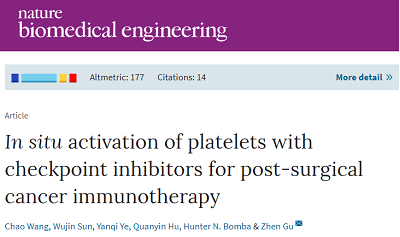
Image source: Nature Biomedical Engineering
In a paper published in Nature Biomedical Engineering in January 2017, Gu et al found that platelets that help blood vessels in the wound can be used to deliver PD-L1 antibodies to the postoperative tumor site. Animal experiments have shown that this new treatment significantly prolongs overall survival after surgery by reducing the risk of cancer regeneration and metastasis. ã€detailed】
Melanin-mediated patch

Image source: Science Immunology
In November 2017, published in Science Immunology, the team proposed a melanin-mediated "cancer immunotherapy patch." This technology not only serves as a therapeutic but also as a cancer vaccine. ã€detailed】
Scientists believe that these findings are encouraging, but the technology is still in the early stages of development. In the future, it is necessary to further evaluate the safety and effectiveness of these technologies, laying the foundation for human trials and ultimately benefiting cancer patients.
Reference materials:
New therapeutic gel shows promise against cancerous tumors
Source: Bio-Exploration
Steroid hormones, also known as steroid hormones, are a class of tetracyclic aliphatic hydrocarbon compounds with a cyclopentane polyhydrophenanthrene nucleus. It has very important medical value. It has a clear role in maintaining life, regulating sexual function, body development, immune regulation, skin disease treatment and birth control.
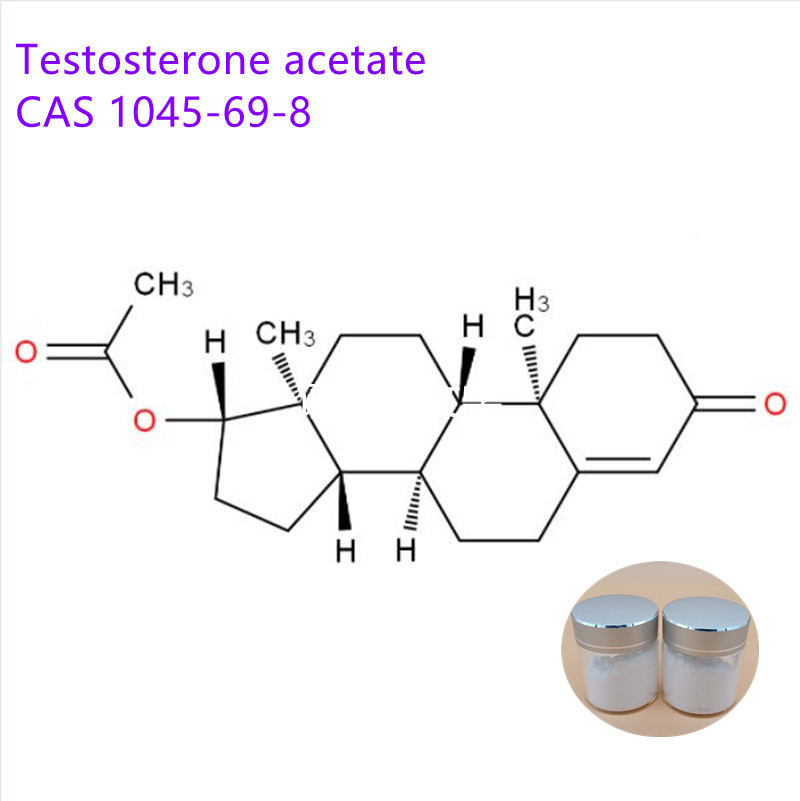
Steroids include steroids (eg cholesterol, lanosterol, sitosterol, stigmasterol, ergosterol), bile acids and bile alcohols, steroid hormones (eg adrenal corticosteroids, androgens, estrogens),
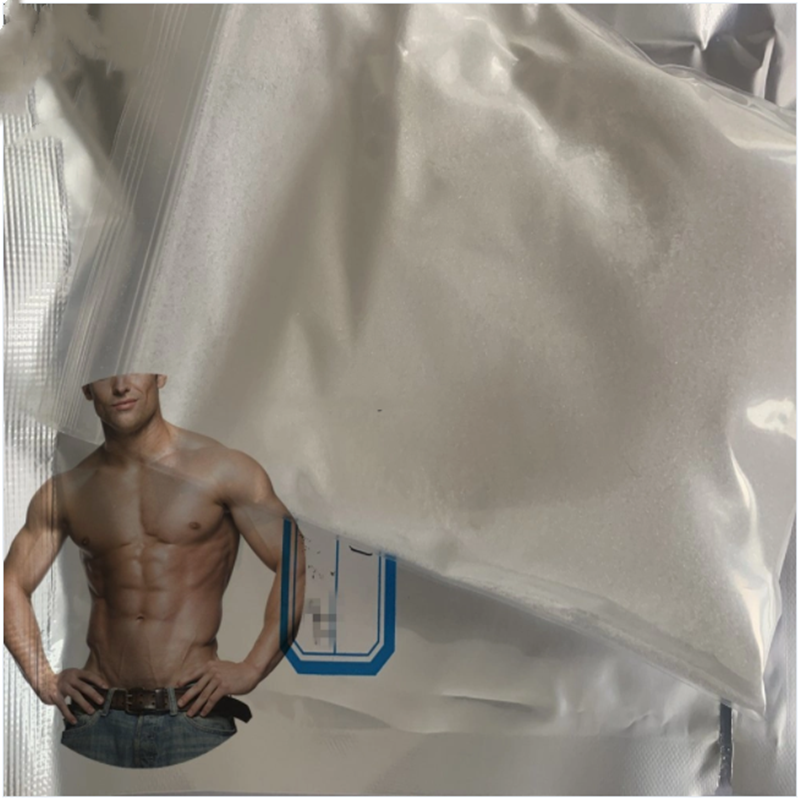
Our company specializes in providing steroid series products, welcome to inquire and order
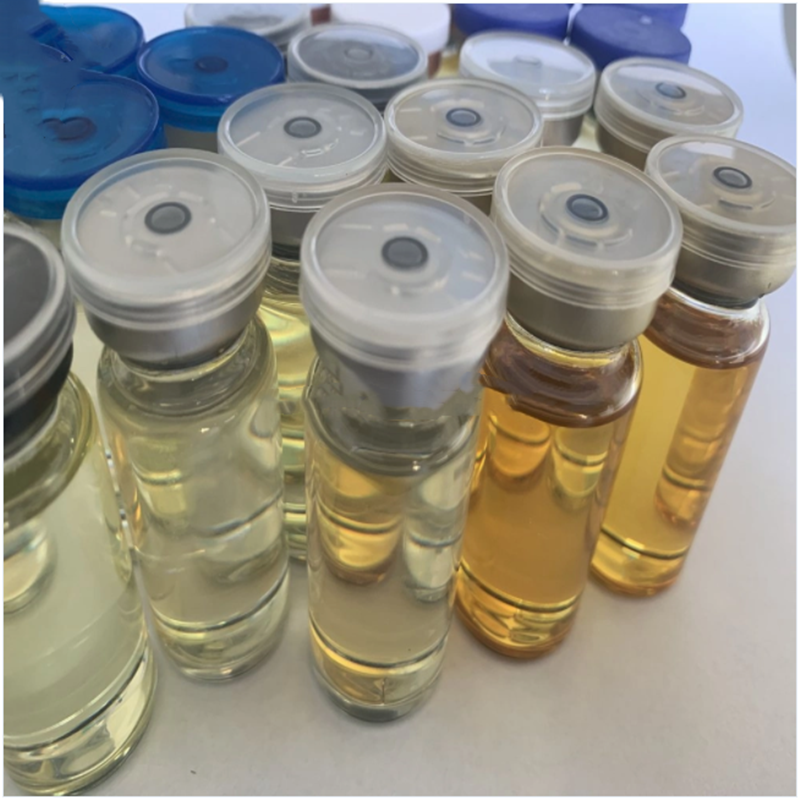
Steroids Oil,Steroid Powder,Steroids Injections,Steroid Powder And Oil
XI AN RHINE BIOLOGICAL TECHNOLOGY CO.,LTD , https://www.rhinebioteches.com